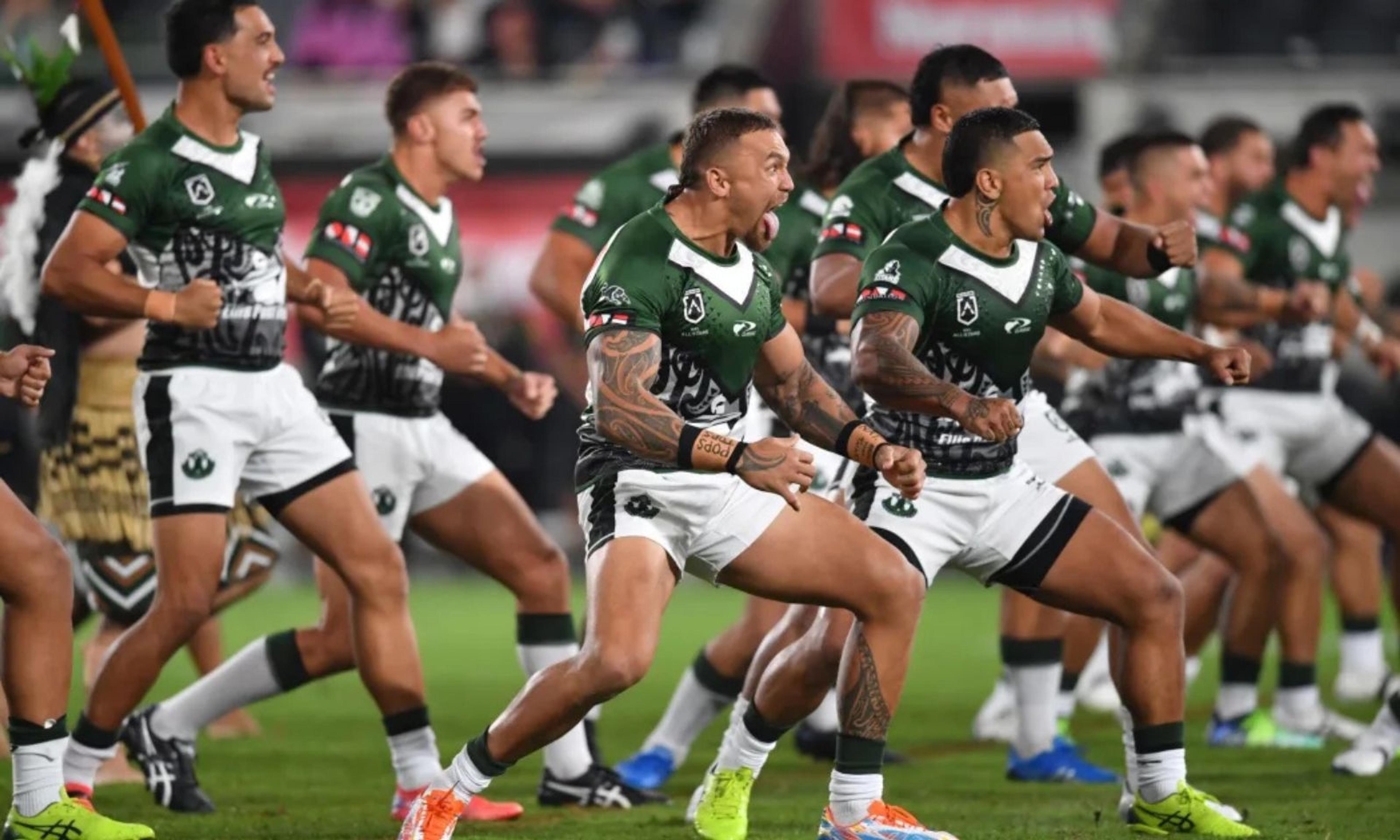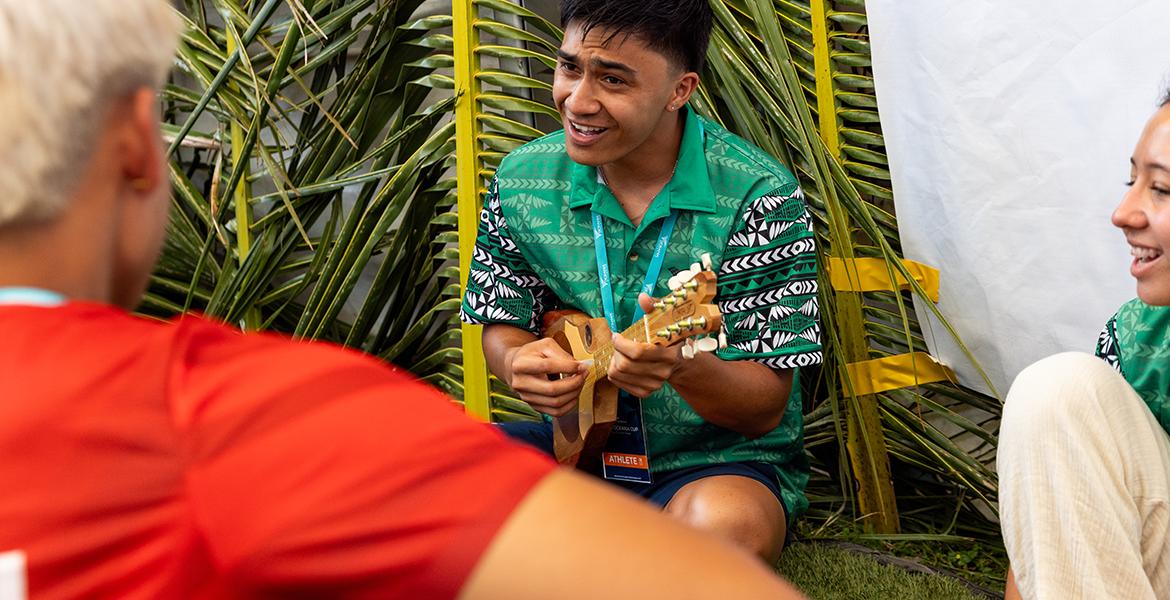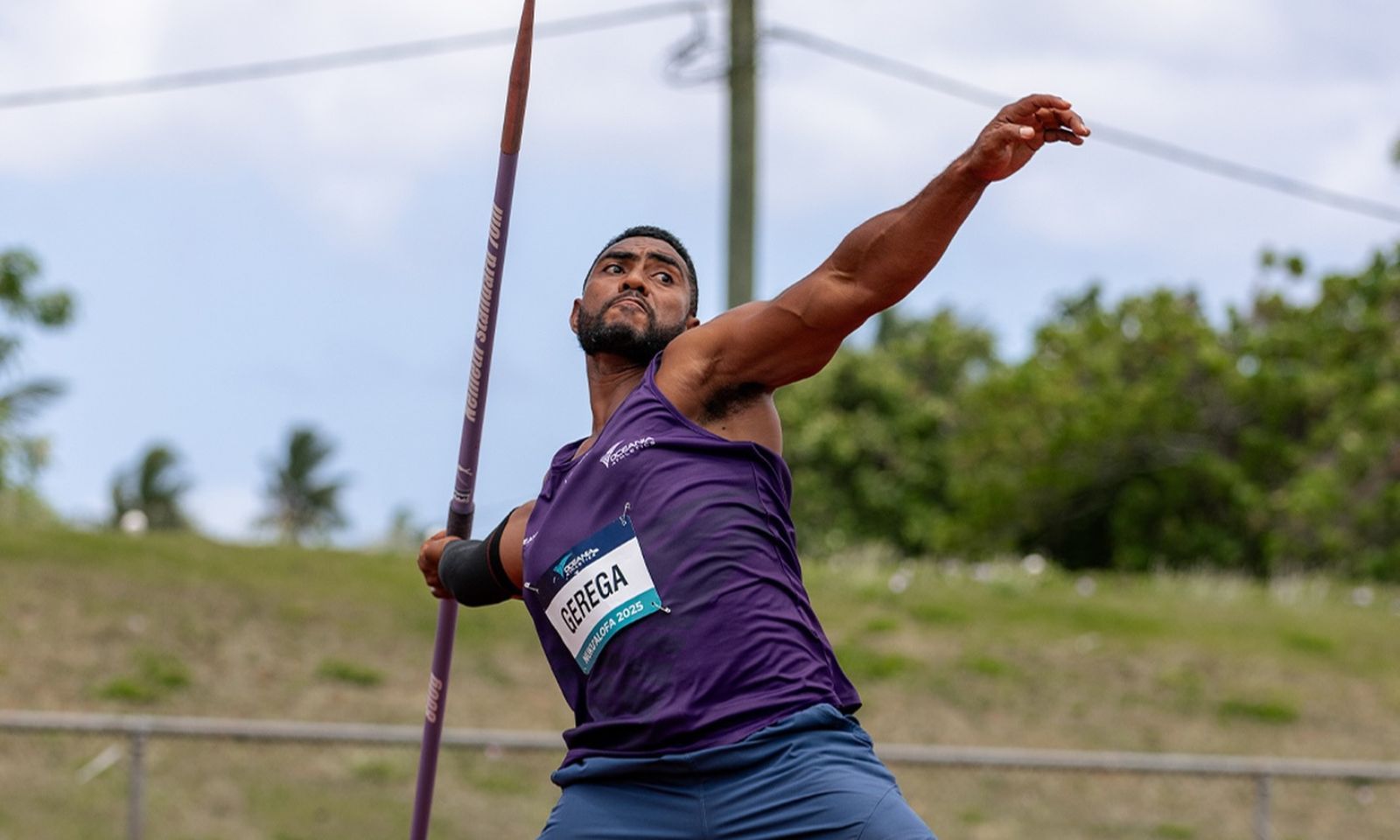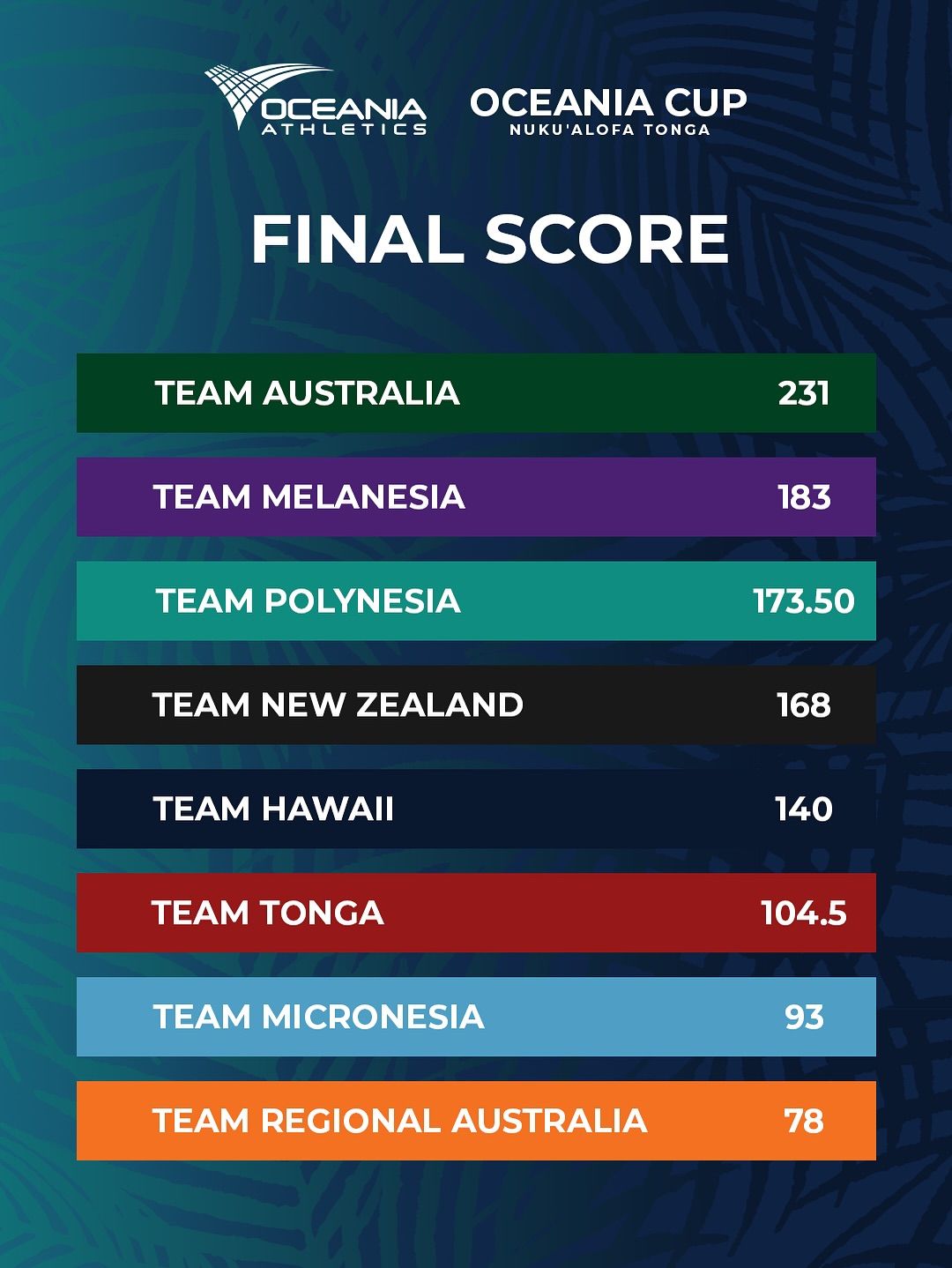

Fiji’s Errol Qaqa powers to gold in the men’s 110m hurdles at the 2025 Oceania Cup in Nuku’alofa, Tonga.
Photo/Oceania Athletics
Fiji duo strike gold at Oceania Cup in Tonga
Errol Qaqa and Samuela Vunivalu turned in standout performances for Team Melanesia in Nuku'alofa.

Time for an Indigenous State of Origin? The All Stars game shows who really powers the NRL



Fiji’s track and field team returned home with pride after a strong showing at the Oceania Cup athletics championships in Tonga.
The celebrations highlighted the achievements of gold-medal winners Errol Qaqa and Samuela Vunivalu.
Qaqa took out the men’s 110m hurdles title in 14.86 seconds, while Vunivalu leapt 7.05 metres to win gold in the men’s long jump.
Vunivalu also added a bronze in the triple jump with 13.21 metres, rounding out an impressive double.
The event, held at Teufaiva Sports Stadium in Nuku’alofa from October 29 to November 1, brought together top athletes from across the Pacific and Oceania, including teams from Australia, New Zealand, Tonga, and the regional squads of Melanesia, Micronesia, and Polynesia.
For the first time in the Oceania Area, athletes had a space designed just for them. The Athlete Zone in Nuku‘alofa provided a place to connect, relax, and recharge during the four-day competition, giving competitors a dedicated area to meet fellow athletes and share experiences.

Athletes relax, connect, and recharge in the dedicated Athlete Zone at the 2025 Oceania Cup in Nuku‘alofa, a space created by athletes, for athletes to support well-being and camaraderie. Photo/Oceania Athletics
The initiative, led by the Oceania Athletes’ Commission under Dame Valerie Adams, was created by athletes, for athletes. It reflects the Commission’s commitment to supporting well-being, leadership, and community in the region, marking a major step forward for athlete engagement across the Pacific.
Adams says the idea was inspired by Athlete Zones at global championships. “World Athletics introduced Athlete Zones in Lima and Tokyo.
"Both were tailored to their venues and athletes, and they worked really well. I wanted to do the same here because there is a clear need for a space like this in our region.”

Papua New Guinea's Lakona Gerega, competing for Team Melanesia, broke his national record with a 68.91-metre javelin throw. Photo/Oceania Athletics
Fiji’s contingent competed as part of Team Melanesia, which finished second overall behind powerhouse Australia.
Fiji’s throwers also stood out. Maryann Macedru finished second in the women’s shot put with a 14.56-metre throw, while Loata Lewageena claimed silver in both the women’s javelin (44.05m) and discus (43.50m).
In the jumps, Sereana Viriviri placed fourth in both the women’s long jump (5.21m) and high jump (1.45m).
Para-athletes Naibili Vatunisolo and Jimi Onitoro also continued Fiji’s proud tradition in para-sport, each winning their events. Onitoro posted personal bests across the 400m, 60m, and long jump.
Team Fiji manager Vaciseva Tavaga, a former champion sprinter, says the athletes’ performances showed real progress heading toward the 2026 Commonwealth Games in Scotland.
“It’s been a solid checkpoint for our athletes,” Tavaga says. “We’ve seen personal bests, strong team spirit, and results that prove Fiji can stand tall in the region.”
The Oceania Cup followed Fiji’s strong campaign at the 2025 Pacific Mini Games in Palau, where they won 30 athletics medals.
While the Tonga delegation was smaller, just five athletes, they still collected eight medals, with nearly half of those performances setting new personal bests.
Qaqa’s repeat hurdles victory and Vunivalu’s breakout long jump gold were among the most promising results as Athletics Fiji looks ahead to next year’s Commonwealth Games cycle.
Oceania Athletics chief executive Peter Shrosbree says the regional competition continues to give Pacific athletes valuable international exposure.
“Events like this are about opportunity and development,” Shrosbree says. “The performances in Tonga show how far the region has come, especially nations like Fiji, which are pushing the bigger teams every year.”
Australia topped the team standings with 231 points, followed by Melanesia (183), and Polynesia (173.5).
For Athletics Fiji and FASANOC, the results in Tonga were more than medals - they were a measure of readiness, depth, and momentum heading into the next Commonwealth Games campaign, Tavaga says.
